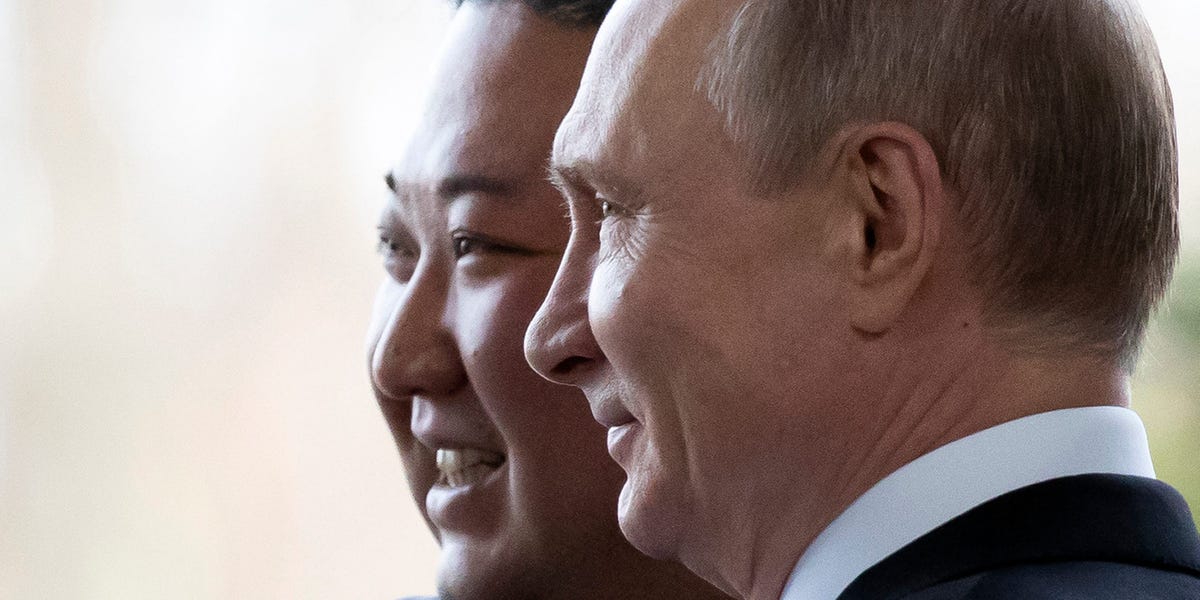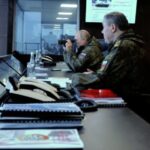- Russia has bought ammunition from North Korea, according to a newly declassified report seen by NYT.
- It’s a sign that Putin may be facing severe ammunition shortages under sanctions, experts said.
- Sanctions are also causing supply issues for drone components, according to UK intelligence.
Russia has been forced to buy ammunition from North Korea amid severe shortages caused by global sanctions, according to a US intelligence briefing reported by The New York Times.
The recently-declassified briefing said that the deal included millions of artillery shells and rockets, but provided few further details of when, or exactly what, has been purchased, the NYT said.
The move is a sign that “the Russian military continues to suffer from severe supply shortages in Ukraine, due in part to export controls and sanctions,” an unnamed US official told the Associated Press (AP).
It comes as news emerged of a confidential report from the Russian government, seen by Bloomberg, which warns that international sanctions are hitting the Russian economy far harder than the Kremlin is willing to say publicly.
A UK Ministry of Defense intelligence memo released on Tuesday noted that Russia is also “struggling to maintain stocks of UAVs” — unmanned aerial vehicles, or drones — a situation it said was likely worsened by sanctions.
—Ministry of Defence ???????? (@DefenceHQ) September 6, 2022
Mason Clark, Russia team lead at the Institute for the Study of War, told the Times: “The Kremlin should be alarmed that it has to buy anything at all from North Korea.”
The rogue state is currently under a 2009 United Nations Security Council ban on importing or exporting weapons.
In August, Russia took delivery of Iranian-manufactured drones, which quickly malfunctioned, according to The Washington Post.
Russia’s approach to its invasion of Ukraine, particularly early in the war, has been highly artillery-based, involving sustained and heavy shelling, as 19fortyfive reported.
A report published by UK-based think tank the Royal United Services Institute (RUSI) said that Russian forces were getting through around 20,000 shells per day, as of July, compared to Ukraine’s daily use of around 6,000.
The report’s authors noted, however, that Russia had significant stockpiles of ammunition from the Soviet era and means of manufacturing them even under sanctions.
Throughout the invasion, Ukraine has generally been outgunned by Russia by a large margin and has itself experienced significant shortages of ammunition and weaponry.
On August 15, a national day of independence on the Korean peninsula, the Kremlin and Pyongyang exchanged broad messages of further cooperation. Kim Jong-Un said North Korea and Russia had a “common front for frustrating the hostile forces’ military threat and provocation.”
Russian state media claimed earlier in August that North Korea was ready to provide 100,000 “volunteer” troops to help hostilities in Ukraine.




